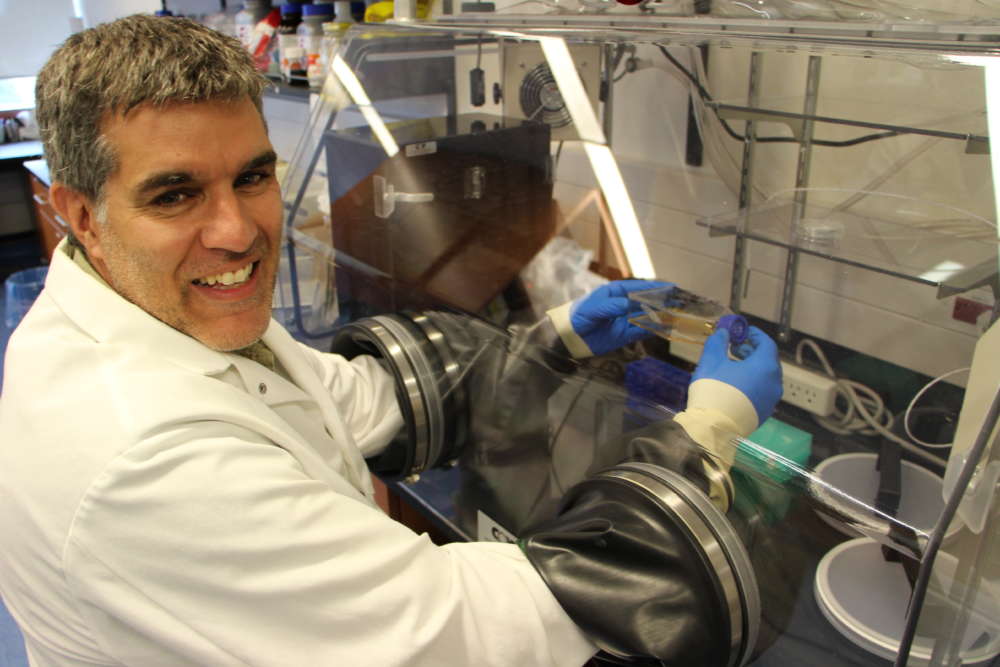
Two drug makers recently announced promising interim results for two COVID-19 vaccine candidates, but a University of Guelph viral immunologist says he has reservations.
Prof. Byram Bridle studies oncolytic viruses (viruses that target cancer cells) in U of G’s Department of Pathobiology. He recently received provincial research funding to adapt the technology to develop a vaccine against SARS-CoV-2, the pandemic coronavirus.
Like many others, Bridle said he worries that Pfizer and Moderna released their interim test results as a press release. Without full scrutiny of the results, he said, many questions are left unanswered.
“Not enough data has been released to know how well the vaccine prevents COVID-19, or if it can weaken symptoms,” he said, “nor do we know how protective the vaccine will be for those who are most susceptible to severe cases.”
For Bridle, a larger concern is the lack of data on the immune response offered by the vaccines, which are called subunit vaccines because they use a fragment of the virus to trigger an immune response.
“Subunit vaccines like these can be misinterpreted by the immune system as an extracellular pathogen,” he said. “That creates the possibility that those who receive such a vaccine might have a ‘bias’ imprinted on their immune system that could cause them to respond sub-optimally to natural infections with future coronaviruses.”
Bridle said the companies provided no data about the vaccine’s effect on immunological memory, “which is the entire point of a vaccine. If the memory response is weak and wanes too quickly, those who receive the vaccine will not be protected over the long term.”
He recently co-wrote a commentary on this topic for Conversation Canada with pathobiology professor Shayan Sharif, associate dean of research and graduate studies in U of G’s Ontario Veterinary College.
Bridle is available for interviews this week.
Contact:
Prof. Byram Bridle
bbridle@uoguelph.ca